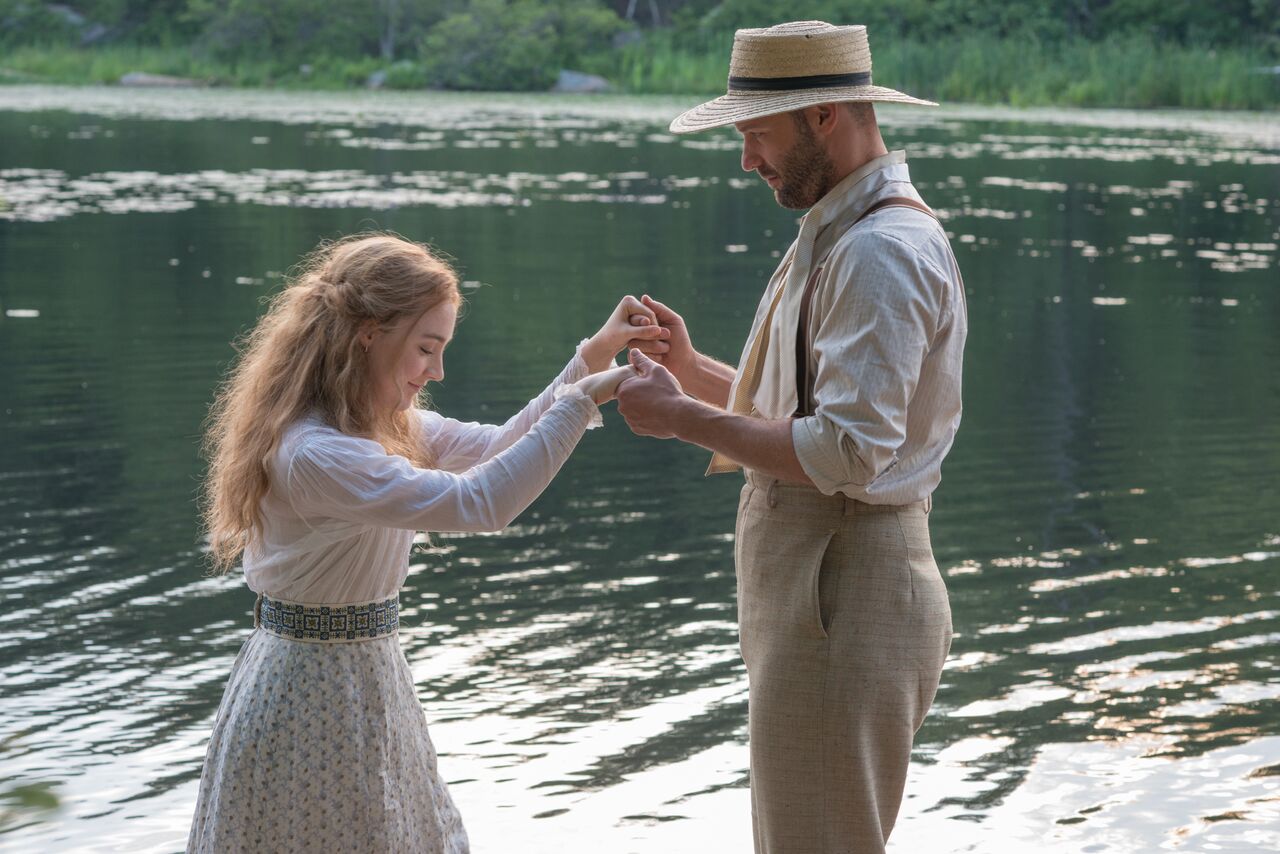It’s all ridiculous. Unrequited love. It only exists in novels.
Michael Mayer populates this languid Chekhov adaptation with a cast that is, prima facie, extremely variable and then he manages to get really variable performances out of even some of the really good actors and, ultimately, that’s what sinks this movie. There’s a great text here, of course, and the film is visually quite lovely, if paced a bit too slow. Annette Bening plays Irina, an aging actress, past her prime but not quite ready to admit it, who has come to visit her brother, played by an affable Brian Dennehy, on his country estate. The tangle of relationships here defy quick explanation; suffice it to say that there are love triangles, quadrangles and musings on the nature of love, art and family. Let me just say a few things about the cast. Bening is fine, not particularly great. Saoirse Ronan, one of my favorite actresses working today, is . . . maybe miscast as the young actress at the heart of the film; she’s, unfortunately, not very good. Billy Howle and Michael Zegan are far worse though as, respectively, a tortured playwright and a love-struck schoolteacher. They do their best to sink the movie. Brian Dennehy is as affable and charismatic as ever, which is problem since he’s supposed to be playing a depressed, hopeless old man suffering from chronic pain. His nihilistic lines don’t really land when he’s chuckling his way through them. Corey Stoll gives one of the best performances in the film; I expected him to feel out of place since this is a 1900s era Russian melodrama, but he’s able to give his character, a disaffected novelist, a sense of real existential weariness. Trigorin is one of Chekhov’s best characters in my opinion, even though he is a disconnected character, and Stoll nails it. Elisabeth Moss gives the other truly great performance; she digs deep into the pain of her character and she’s the only performer in the movie who seems to grasp that sorrow is one of the primary emotions of this play. It’s a dark, really grim performance. I think the film is somewhat troubled by the fact that its cast is coming at things from all directions. Howle & Zegan are the most obviously melodramatic; they’re going full theatrical in a way that really doesn’t work. On the other end of the spectrum, Stoll, Dennehy and some of the supporting characters are going with a very naturalistic style. The three big actresses in the film are landing in between the two styles; Bening, Ronan and Moss are all going for something more than naturalism, a kind of elevated style, but they’re keeping their emotions real and internal, not externalizing them like Howle & Zegan. It isn’t that any of these styles are necessarily the problems. Stoll & Moss give the best performances and they’re working in very different ways. But it does make the good things about the movie feel isolated. In some scenes, it’s like all the actors are just kind of doing their own thing and so there’s not a lot of chemistry to be had, which is where a story about interpersonal relationships has to work. It’s not a terrible film. The text is strong enough to carry some weight and the performances that are good are really quite astoundingly so. But it’s definitely a film that should be a lot better and, as carefully curated as the visual lushness is, the movie feels sloppy and inconsistent. The Seagull survives this attempt on its life, but that’s about all. 2 ½ stars.
tl;dr – odd casting, variable performances, problems with tone all hurt this adaptation; the text remains strong and a couple of genuinely great performances help, but it’s a misfire all told. 2 ½ stars.
